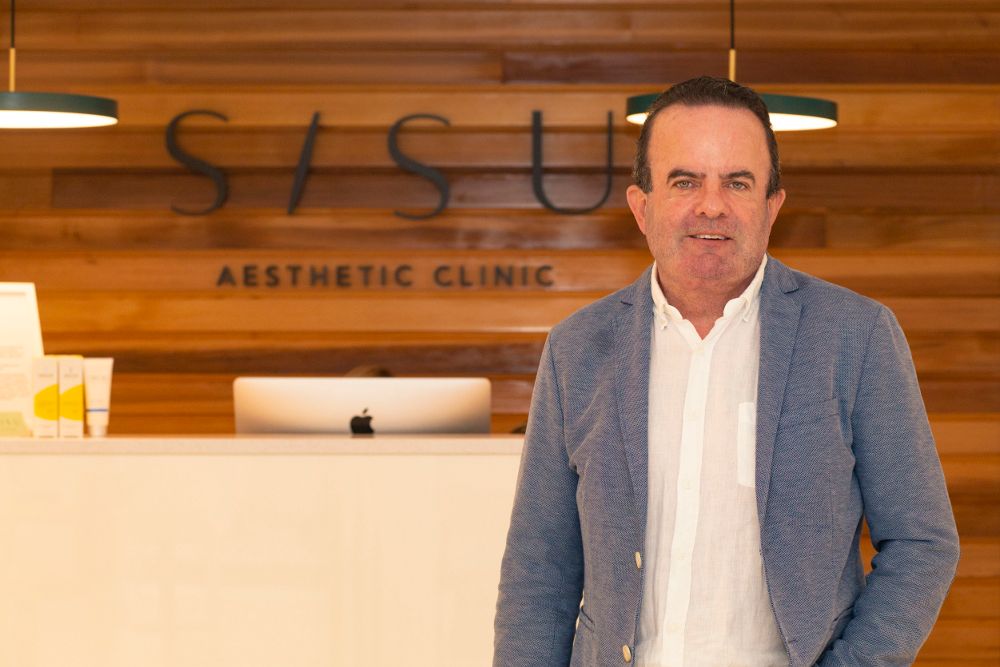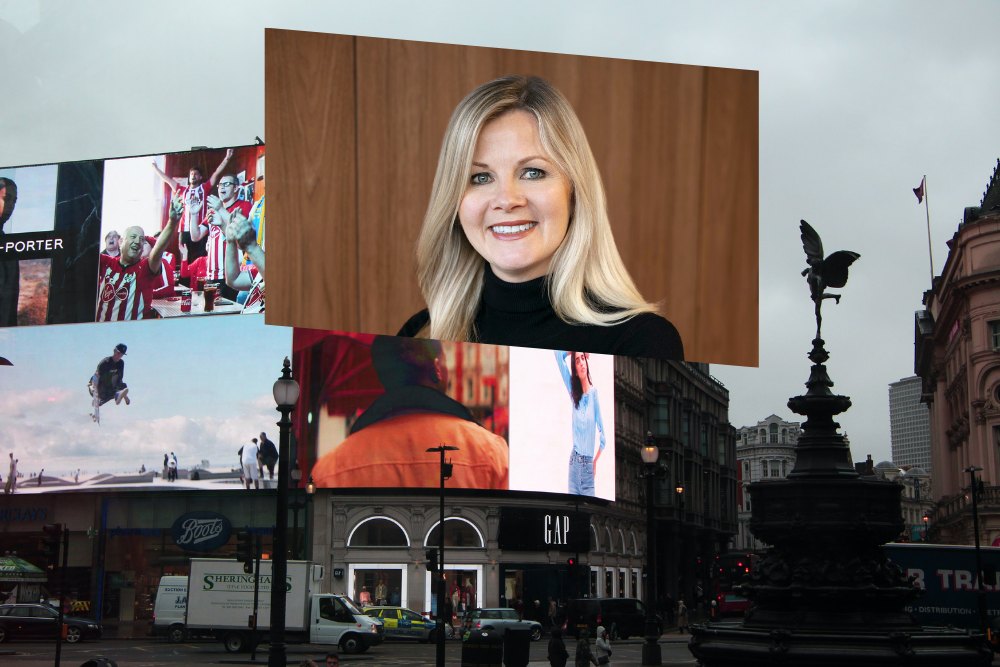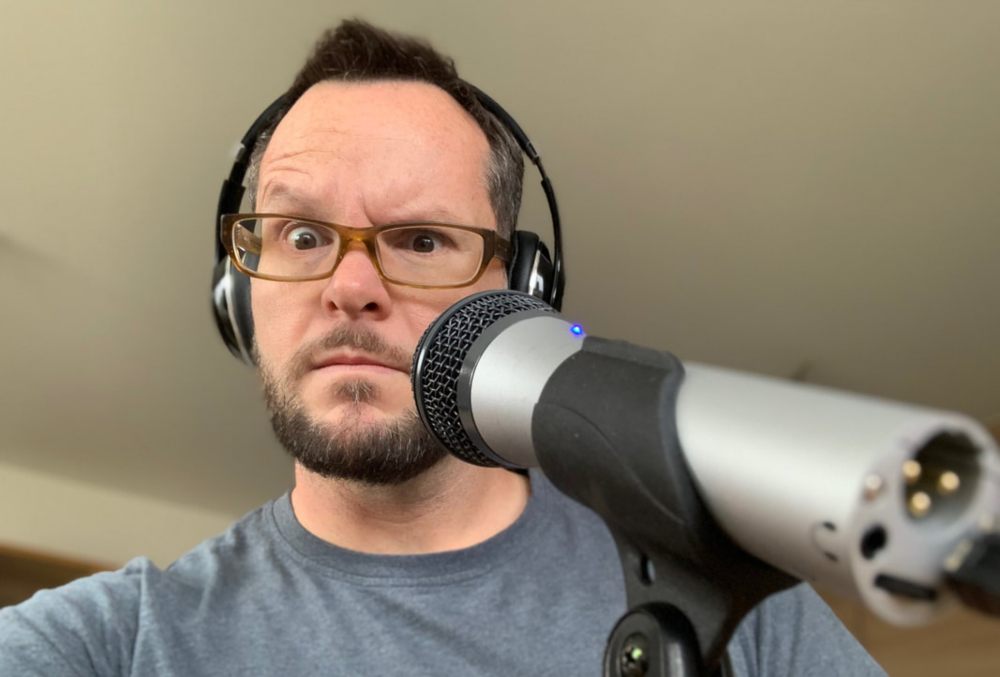Podcast Ep 159: Irishwoman Medb Riordan talks about how her ambition took her from the reception desk to eventually become MD of one of the world’s most prolific production houses, Academy Films.
There can be few people in the northern hemisphere, or the globe for that matter, whose lives have not in some way been touched by the output of Academy Films. Founded by the renowned Lizie Gower, its output of films, music videos and TV ads includes the famous Guinness ad featuring the line “good things come to those who wait” to Jamiroquai’s Virtual Insanity, Bittersweet Symphony by the Verve, Street Spirit (Fade Out) by Radiohead, Massive Attack’s Teardrop and most recently the Rolling Stones’ Scarlett starring Irish actor Paul Mescal. Most recently Academy produced the latest Financial Wellbeing ads for Bank of Ireland.
At the heart of this activity over the past 15 or more years has been Irishwoman Medb Riordan.
“I never for once took for granted my opportunity and I made the best of it”
Riordan’s can-do attitude and natural enthusiasm have carried her far. She left Dublin for London to make it in the TV and movie business and seized the first opportunity she could get to work at Academy Films. She worked her way from the reception desk to eventually becoming Academy’s managing director and co-owner and working alongside the industry’s top directors. As well as winning multiple awards including the Gold Cannes Lions, Medb recently produced her first feature film Earth Mama.
“I think what people always liked about me was my work ethic. I was always there and up for a laugh,” she chuckles midway through our interview.
Another plucky point she makes about balancing running a business with creativity that she learned at Academy: “Well if it’s not going to be profitable, it better win awards!”
London calling
“I think the industry has changed a lot across the board. Whether it’s film or advertising, there’s definitely a push to diversify and take on people from different backgrounds. I’ve been actively involved in trying to change it”
Riordan studied multimedia at DCU and after graduating she did a stint in London working in retail, but knew she wanted to work in TV and movies. But where to start? Various odd-jobs at Dublin production houses as a freelance runner/producer only fuelled her ambition. She needed a break and felt a return to London was on the cards.
“A friend of mine at the time was a producer and she said to me that if I do go to London ‘park any notions that you know anything and start from the bottom’.”
She saw an ad for a receptionist job at Academy Films and found herself in front of legendary producer Lizie Gower. “She asked me how I thought I could come to London and start at the bottom. I was like ‘well, everybody else is doing it; all my friends are living cap in hand and we’re all looking for the £2 pints’. And she gave me the job then and there. I think they were impressed that I came all the way over to London for a reception job. They weren’t expecting me to fly over for it. To be fair to my mum, she covered the Ryanair flight. She was always keen for me to succeed.”
Riordan was initially overwhelmed by Academy’s output. “I was looking at the pitching board and there were videos for Lily Allen and other artists I was listening to at the time.
“So yeah, it was on one hand intimidating, but on the other hand it was incredibly exciting.”
After cutting her teeth as receptionist she founder herself Gower’s PA. “When you go into an industry like this you have to have a level of humility. I never looked at these incredible producers and said that’s my goal. It was only through learning that you would get there and my main goal was always getting to the next stage. And that next stage was to be PA to the famous Lizie Gower, which was an interesting job and a little bit to me like being in The Devil Wears Prada but a great way to cut your teeth.”
It was a shaky start but she earned her spurs. “At first I was in over my head. There was no manual, no book. How do you look after other people when you’re 26, you can barely look after yourself. She [Gower] sat me down in front of the whole office one day and said: ‘I was going to fire you today’. Everybody goes quiet. ‘But I know you’re not terrible. So I’m going to give you another chance.’”
Riordan realised she had felt intimidated by the talent all around her and was self-conscious about asking questions. She seized that chance Gower offered and turned it around, excelling at the job. She gradually moved up the ladder to become a production assistant, a production manager and eventually a producer. “She [Gower] was testing me, she knew I had the ambition. It was a test to make sure I was really in it for the right reason.
“It was always my goal to get to the next step. I was hungry and I wanted to get there quickly. I was excited about the industry and took on every project in short form. When you work on short form they can be 6-to-8 week long jobs, not like feature films which can go for 2-to-3 years. When you work on short form you could be doing a music video for Primal Scream or a Christmas ad for Sainsbury’s or Jamie Oliver. I never for once took for granted my opportunity and I made the best of it.”
Be the change you want to see
Making it as a producer of everything from short form videos to full feature firms is not a precise art, as Riordan discovered. “You could have a PhD in neuroscience or you could come straight from the Junior Cert, everybody starts in the same place; you start from the bottom and you have to learn the ground and understand the structure. The job of a producer is to bring everything and everyone together. As Jonathan Wang, producer of Everything Everywhere All at Once put it: ‘There isn’t one person that makes a film, it’s an entire team.’”
When Riordan first entered the film industry she was conscious of being an outsider, a young woman from Ireland, and felt there was a lot of nepotism in the industry at the time. “I think the industry has changed a lot across the board. Whether it’s film or advertising, there’s definitely a push to diversify and take on people from different backgrounds. I’ve been actively involved in trying to change it. You start to see different people rise up who don’t exactly look or sound like everybody else.”
As a producer, every project in itself is a small business. “You have a budget to work to, and you want to make sure that your business is somewhat profitable so that it can sustain the next project you take on. And that is a challenge whilst also maintaining a really high standard.”
Having worked her way up to becoming a veteran producer, Riordan’s elevation to co-owner and managing director was unexpected.
She had been offered a new job elsewhere and decided to hand in her notice after 10 years at Academy. However, after a few weeks she got a call from Lizie Gower who revealed she planned to retire and asked would Riordan be up for becoming managing director alongside Simon Cooper. She had been trying to find the right partner for Cooper, someone who lived and breathed Academy’s values and understood the directors it represented. Riordan, she felt, was the person.
Riordan, who fostered ideas of setting up her own production house, consulted her dad. “And he said to me: ‘Do you want to be on the train that is moving or be trying to get the train to start’.
“The ambition of further creative reach was the most exciting thing for me.”
One of those ambitions was to produce a feature film and this year Earth Mama, an intimate coming of age story about a pregnant single mother directed and written by Savanah Leaf and produced by Riordan, was released.
Another ambition is to support new and emerging talent in the film industry.
“It is my goal to bring up the next generation in a way that, while it was incredibly hard for me, it was an absolute joy and a complete opportunity. I want to offer that back to other people in the same way and for different types of people.
“It’s about giving them the passion and the understanding that this type of hard work does pay off.”
-
Bank of Ireland is welcoming new customers every day – funding investments, working capital and expansions across multiple sectors. To learn more, click here
-
Listen to the ThinkBusiness Podcast for business insights and inspiration. All episodes are here. You can also listen to the Podcast on:
-
Spotify
-
SoundCloud
-
Apple
Main image at top includes photo by Noom Peerapong on Unsplash





